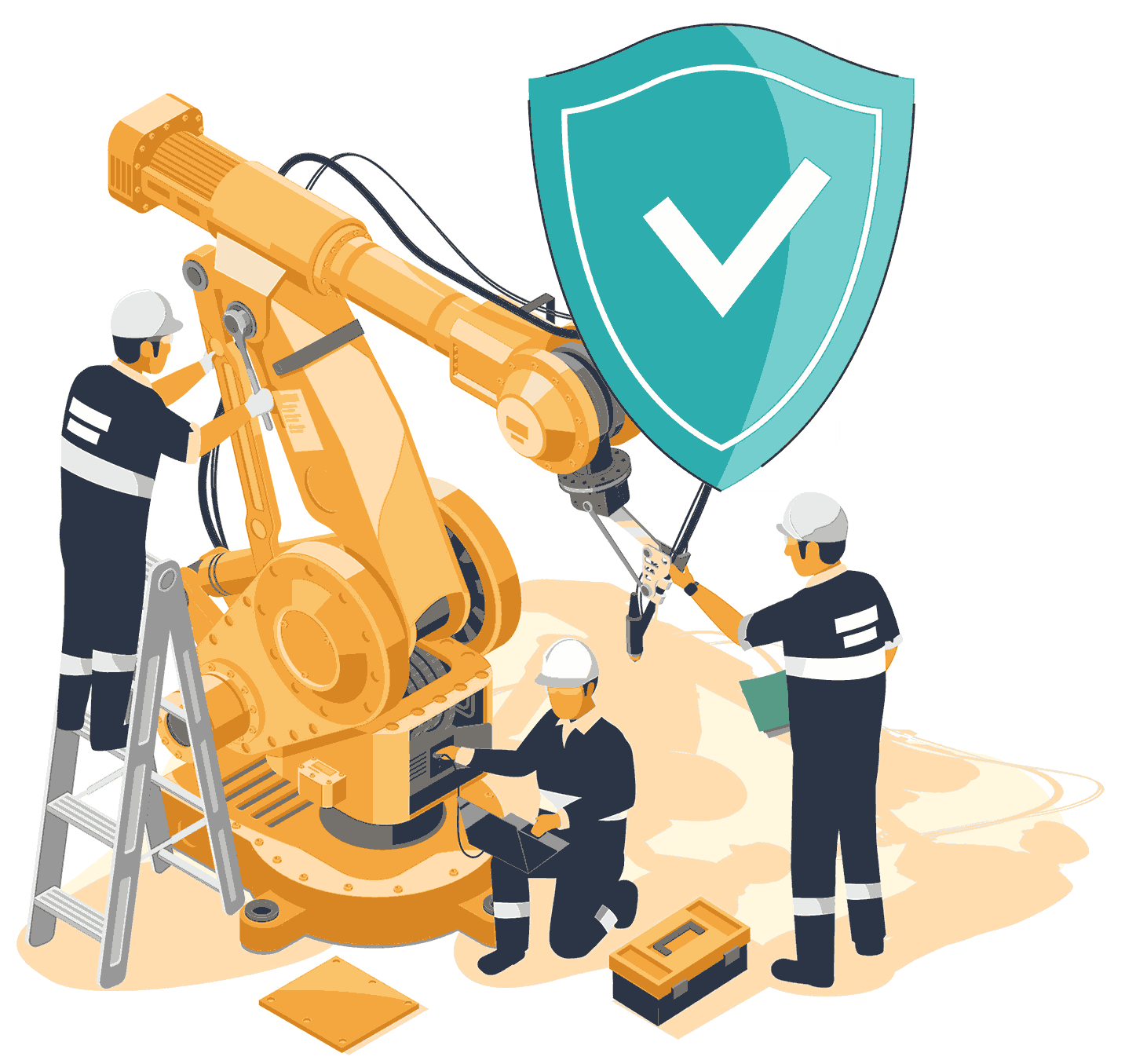
 Ethika Insurance Broking Pvt. Ltd - Insurance Broking Company - Preferred Corporate Insurance Brokers for small businesses and mid-size businesses. IRDAI Certificate No: 574, Date of License: 8th August 2016,
Ethika Insurance Broking Pvt. Ltd - Insurance Broking Company - Preferred Corporate Insurance Brokers for small businesses and mid-size businesses. IRDAI Certificate No: 574, Date of License: 8th August 2016,
License valid till 7th Aug 2025, Registered Address: 1st Floor, 1-88/136, Anjaiah Nagar, Gachibowli,
Hyderabad, 500032, Telangana | www.ethika.co.in Principal Officer: Sandeep Mukka,
Email Details of Principal Officer: sandeep.m@ethika.co.in , Directors: Susheel Agarwal and Suresh Agarwal, Category of License: Direct (Life and General).
Copyright © 2025 | Ethika Insurance Broking. All rights reserved.
Site Map / Become our Point of Sale Person / Privacy Policy / POSH Policy / Terms & Conditions
 Get a free review of your
Get a free review of your Machinery breakdown insurance, formerly known as Boiler and Machinery insurance, is designed to cover the losses arising out of all types of mechanical, electrical, and accidental breakdowns as a result of internal and external causes. Machinery breakdown insurance was formerly referred to as boiler and machinery insurance as it was intended to cover the risks faced by boilers and other machinery in the industries. Still, later, with the emergence of many types of machines and the redundancy of boilers, the insurance was re-christened Machinery breakdown insurance. In the olden days, most industries used boilers. Therefore, the policy was designed keeping them in mind, but due to the change in the equipment, the coverage of the policy was also modified accordingly. Machinery breakdown insurance covers the machinery during the time it is in operation or at rest or in the process of dismantling, overhaul, or during subsequent re-erection at the same premises. It is important to note that the policy is premises-specific, and the damage to the machinery is covered only when the machinery is present on the insured premises.
Machinery breakdown insurance, formerly known as Boiler and Machinery insurance, is designed to cover the losses arising out of all types of mechanical, electrical, and accidental breakdowns as a result of internal and external causes. Machinery breakdown insurance was formerly referred to as boiler and machinery insurance as it was intended to cover the risks faced by boilers and other machinery in the industries. Still, later, with the emergence of many types of machines and the redundancy of boilers, the insurance was re-christened Machinery breakdown insurance. In the olden days, most industries used boilers. Therefore, the policy was designed keeping them in mind, but due to the change in the equipment, the coverage of the policy was also modified accordingly. Machinery breakdown insurance covers the machinery during the time it is in operation or at rest or in the process of dismantling, overhaul, or during subsequent re-erection at the same premises. It is important to note that the policy is premises-specific, and the damage to the machinery is covered only when the machinery is present on the insured premises.
 Step 1: Insured must notify the insurance company immediately after the event resulting in loss or damage to the machinery. Insured customers should also be able to provide a detailed description of the events resulting in the loss. The description should contain the nature and extent of the damage or loss to the machinery. It is important to note that in case of loss, the insured must take all necessary and reasonable steps to reduce the extent of loss. In simple words, the insured must act as uninsured and try to reduce the loss to any extent possible.
Step 1: Insured must notify the insurance company immediately after the event resulting in loss or damage to the machinery. Insured customers should also be able to provide a detailed description of the events resulting in the loss. The description should contain the nature and extent of the damage or loss to the machinery. It is important to note that in case of loss, the insured must take all necessary and reasonable steps to reduce the extent of loss. In simple words, the insured must act as uninsured and try to reduce the loss to any extent possible.